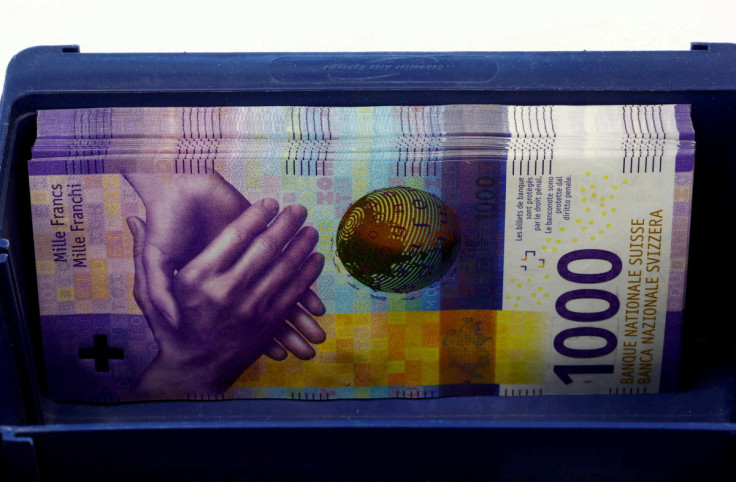Swiss Central Bank Steps Up Policy Tightening As Sight Deposits Drop $78 Billion

Overnight deposits held by the Swiss National Bank plunged by 77.5 billion Swiss francs ($78.32 billion) last week, their biggest ever weekly fall, the latest sign of the central bank's switch to a more restrictive monetary policy.
Sight deposits - commercial bank money held by the SNB - dropped to 669.6 billion francs from 747.1 billion a week earlier, data on Monday showed.
It was the biggest weekly drop since records began in 2011, and was likely the result of the SNB using bond sales and reverse repos to absorb excess liquidity in the market, economists said.
The SNB declined to comment on its market actions.
Last month, it said it would resort to bonds and repos to steer the market interest rate - or Swiss Average Rate Overnight (SARON) - towards its policy rate, which it raised to 0.5% from minus 0.25%.
After the interest rate change, the bank's sight deposits were up to 28 times their minimum reserve level and will receive interest of 0.5%, while deposits above the level are not eligible for interest.
It is estimated the limit for all commercial bank reserves eligible for interest is 580 billion francs, or 80% of their holdings before the SNB's liquidity absorbing operation began.
"Most of the decline in sight deposits is likely due to liquidity absorbing operations, repos and SNB bills," said Credit Suisse economist Maxime Botteron.
"Even banks that have not reached the threshold and therefore do not hold unremunerated reserves at the SNB may want to buy SNB Bills. The 3-month and 6-month bills that the SNB issued yield more than the policy rate at which the banks reserves are remunerated."
Recent bonds issued by the SNB have had yields of 0.56% and 0.9%1.
Botteron said it was also possible the SNB might have sold some of its foreign currency reserves, which would also reduce sight deposits, as the franc depreciated slightly against the euro over the last few days.
SNB Chairman Thomas Jordan has said the central bank would consider selling foreign currencies if the franc weakened, especially with the franc's high value proving helpful in restraining Swiss inflation.
Inflation fell in September to 3.3% from 3.5% in August, further good news for the SNB which has switched from fighting the strong franc towards trying to tame inflation.
Still, economists are wary of reading too much into one month's data and expect further rate hikes in the months ahead.
"One print does not mean a change in trend. We still expect inflation will rise further in Switzerland until January, when electricity prices are adjusted upward," said Elias Hafner, an FX strategist.
"Therefore, the SNB will further adjust its monetary policy and will further hike interest rates," said Hafner, who expects a 75 basis point hike in December.
($1 = 0.9895 Swiss francs)

© Copyright Thomson Reuters 2024. All rights reserved.





















